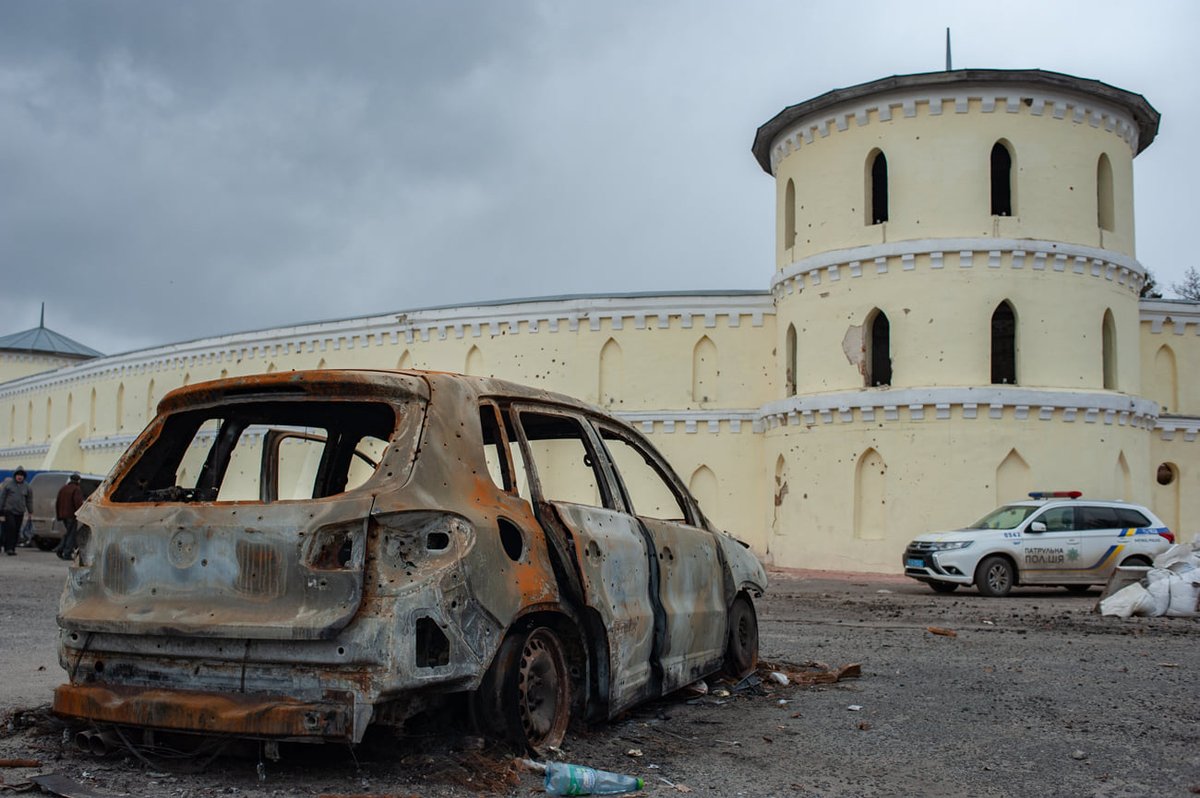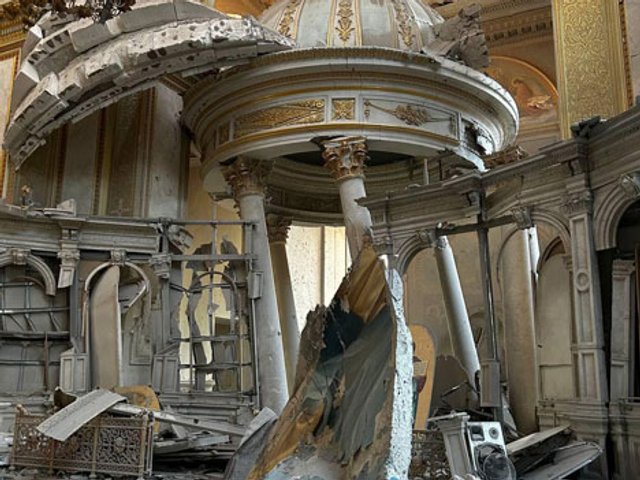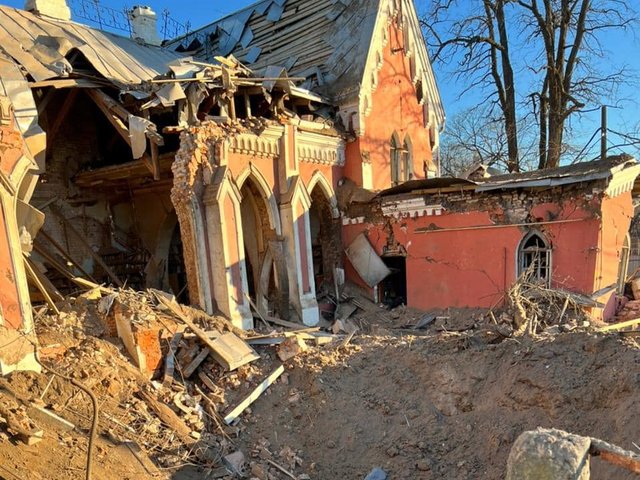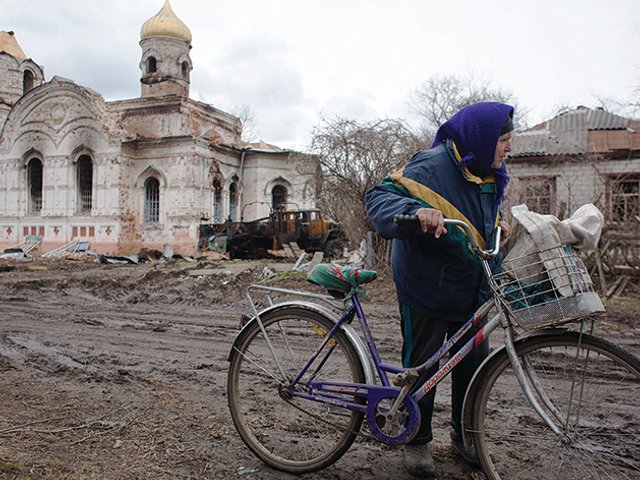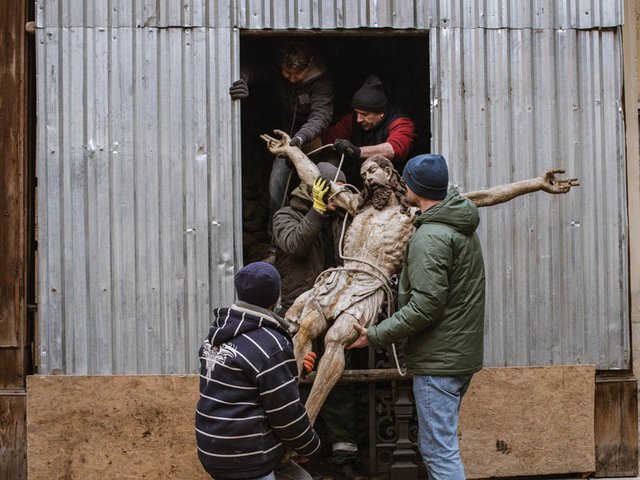Cultural sites in Ukraine connected to the Russian composer Pyotr Tchaikovsky have been damaged by Russian forces, according to sources on the ground.
The 18th century neoclassical palace complex in Trostianets, northeastern Ukraine, includes a local history museum, a museum of chocolate, an art gallery and a room devoted to Tchaikovsky, as well as a monument to the composer in the estate’s park. Often referred to as Koenig Manor after its last pre-1917 owner, the German sugar baron Leopold Koenig, it is also unique for a castle-like structure known as the Round Yard, built in 1749.
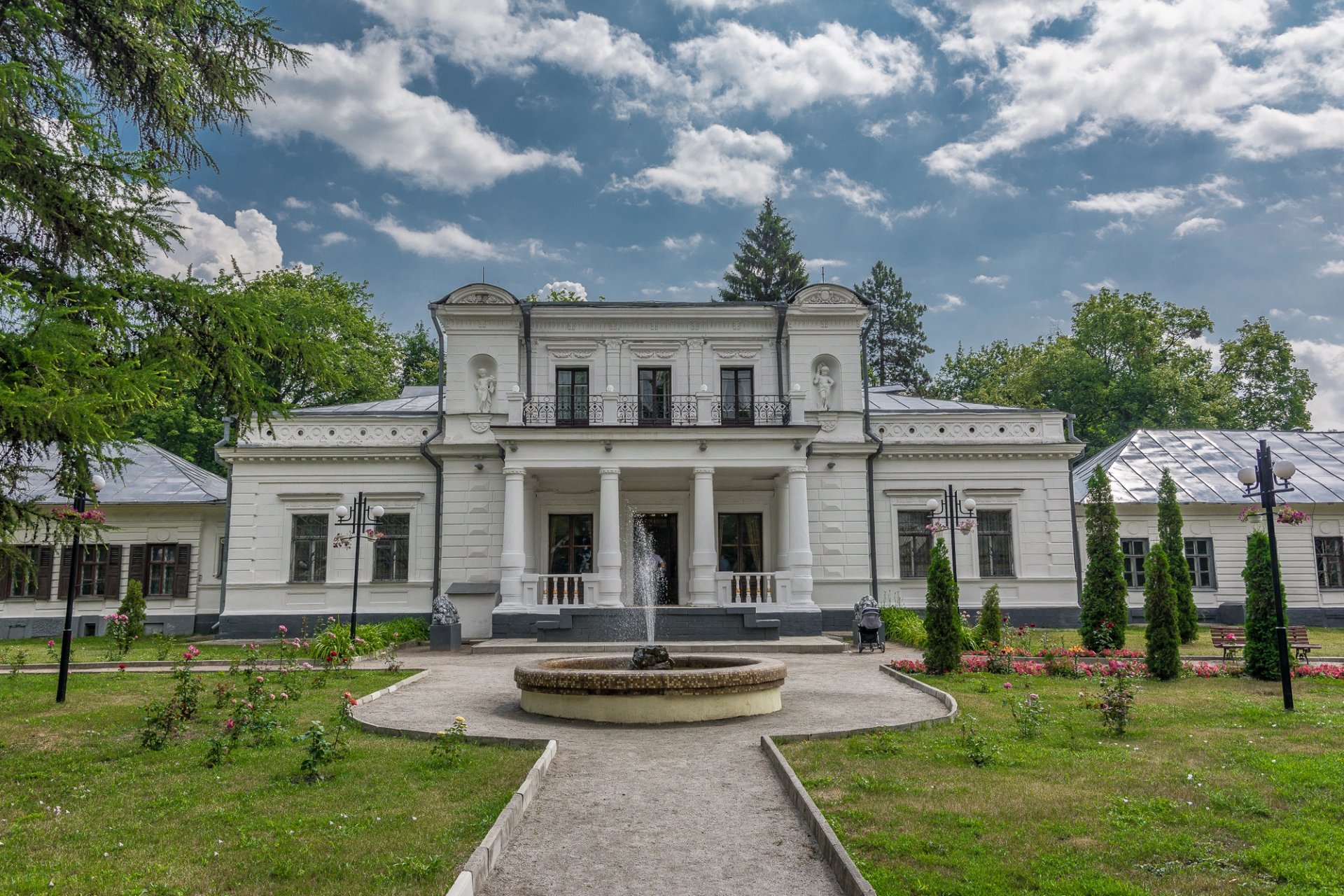
The palace at the Koenig Estate in 2018 after restoration Photo: Demmarcos
Yuriy Bova, the mayor of Trostianets, told BBC News Ukraine this week: “The Koenig estate is partially damaged. The doors of the historical museum are broken, the wall is damaged, the collection is partially damaged. The Round Yard, thank God, survived, although Russian artillery fire systems were striking near it. This monument survived, but it was riddled with shrapnel. It will be necessary to inspect it, to record the destruction.” In 1911, Koenig also built an Art Nouveau villa on the grounds. It was found to be a charred ruin after Russian forces retreated.
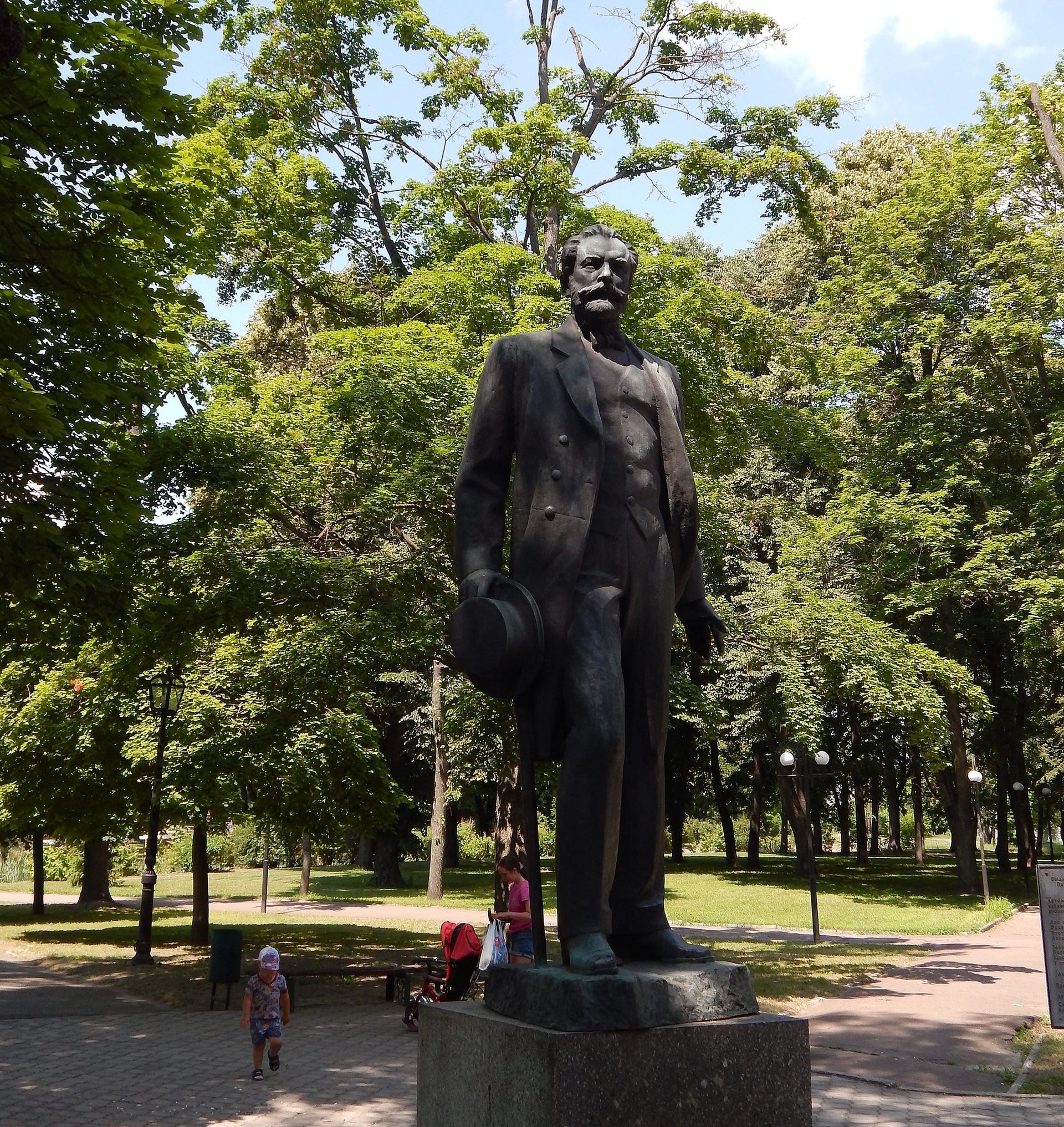
The statue of Tchaikovsky in Trostianets Photo: Venzz
Tchaikovsky came to Trostianets in 1864 to visit his friend Prince Alekseyi Golitsyn and composed The Storm, op. 76 at his palace in the picturesque town, which is now 20 miles from the Russian border. The estate celebrated its connection to the famous Russian Composer every year with the music festival Tchaikovsky Fest. The site fell into ruin in the Soviet era and several years ago the EU gave an 8.7 million hryvnia (£230,000) grant for its restoration.
Russian troops stormed into Trostianets on 24 February, the day President Vladimir Putin launched the invasion of Ukraine. The town was liberated by Ukrainian forces on 26 March. News and social media since then has reported on severe destruction of the city, looting, torture and summary executions of residents.
Many local groups and residents posted on Facebook with memories of the estate and photos and videos of the damage. Several expressed shock and anger that Russian troops would target a site devoted to Tchaikovsky.
Posted by Ola Kovalevska on Sunday, March 27, 2022
One woman said it is time to break with the past reverence for Russian culture and any connection of Russian cultural figures with their region and move on, which she illustrated with a photo of a ballerina leaping over ruins labelled “Russian culture.”
“After the war Tchaikovsky will be mentioned less and less often,” she wrote. “All of this being transfixed before Chekhov and Tchaikovsky in the Sumy region must come to an end,” she said referring to the name of the province. “We must think about our artists, remember the names erased by the empire, and create new ones.”


